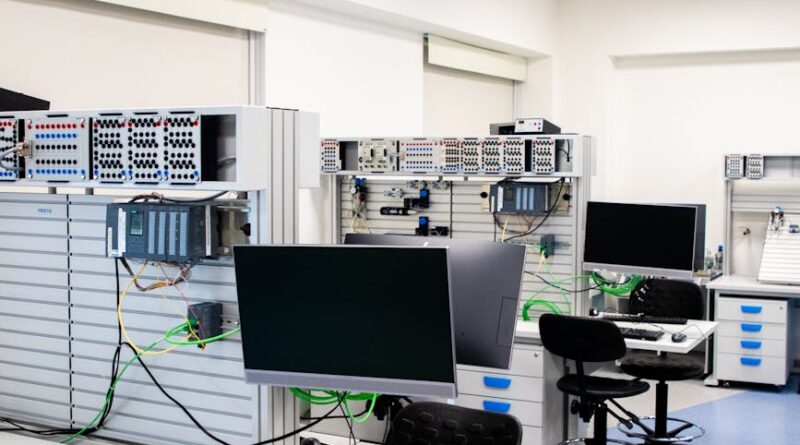Exploring Edge Computing in the Context of Web Hosting
Welcome to the cutting-edge world of technology where speed, efficiency, and connectivity are paramount. In today’s digital age, where data is king and instant gratification is the norm, traditional computing methods are evolving to keep pace with the demands of the modern world. One such innovation that is revolutionizing the way we approach data processing and storage is edge computing. When we delve deeper into the realm of edge computing in the context of web hosting, we uncover a world of possibilities and opportunities that are reshaping the digital landscape.
The Rise of Edge Computing
Edge computing is a distributed computing paradigm that brings computation and data storage closer to the location where it is needed, rather than relying on a centralized data processing hub. This decentralized approach minimizes latency, reduces bandwidth usage, and enhances overall performance, making it ideal for applications that require real-time data processing. In the context of web hosting, edge computing plays a crucial role in optimizing website performance, improving user experience, and ensuring seamless connectivity.
Key Benefits of Edge Computing in Web Hosting

1. Improved Performance: By bringing computing resources closer to end-users, edge computing reduces latency and ensures faster response times for web hosting services. This leads to improved website performance, higher customer satisfaction, and increased retention rates.
2. Enhanced Security: Edge computing allows for data processing and storage to occur closer to the source, minimizing the risk of data breaches and cyber attacks. With sensitive information being processed locally, the security of web hosting services is significantly strengthened.
3. Scalability and Flexibility: Edge computing offers a scalable and flexible infrastructure that can adapt to changing demands and workloads. This agility is essential for web hosting providers to meet the evolving needs of their clients and deliver seamless services at all times.
Applications of Edge Computing in Web Hosting

1. Content Delivery Networks (CDNs): Edge computing is instrumental in powering CDNs, which distribute content across a network of servers located at the edge of the network. This accelerates the delivery of web content, reduces latency, and enhances the overall performance of websites.
2. Internet of Things (IoT) Devices: With the proliferation of IoT devices, edge computing plays a critical role in processing and analyzing data generated by these connected devices. Web hosting services can leverage edge computing to support IoT applications and deliver real-time insights to users.
3. Mobile Edge Computing (MEC): MEC brings edge computing capabilities to the mobile network infrastructure, enabling faster data processing for mobile users. Web hosting providers can optimize their services for mobile devices by leveraging MEC to deliver seamless experiences on smartphones and tablets.
The Future of Edge Computing in Web Hosting

As technology continues to advance at a rapid pace, the future of edge computing in web hosting holds immense potential for innovation and growth. With the advent of 5G networks, the Internet of Things, and artificial intelligence, edge computing is poised to become even more integral to the digital ecosystem. Web hosting providers that embrace edge computing will be able to offer faster, more secure, and more reliable services to their clients, setting themselves apart in a competitive market.
Common Misconceptions About Edge Computing
1. Edge computing is only relevant for large enterprises: While larger organizations can benefit greatly from edge computing, small and medium-sized businesses can also leverage this technology to enhance their web hosting services and improve customer experiences.
2. Edge computing is too complex to implement: While edge computing may require specialized knowledge and infrastructure, there are solutions available that make it more accessible to a wider range of businesses. By partnering with experienced providers, companies can easily integrate edge computing into their web hosting operations.
Conclusion
To wrap things up, exploring edge computing in the context of web hosting unveils a world of opportunities for businesses looking to optimize their online presence. By leveraging the power of edge computing, web hosting providers can deliver faster, more secure, and more reliable services to their clients, ultimately enhancing the overall user experience. As technology continues to evolve, the role of edge computing in web hosting will only grow in importance, shaping the digital landscape for years to come. Embracing this innovative approach to data processing and storage is key to staying ahead in a competitive and ever-changing market.




